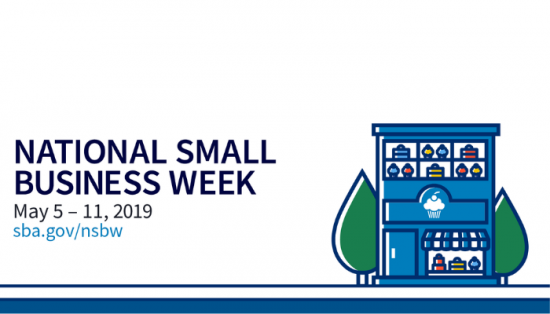
This year, National Small Business Week is being held between May 5th and 11th and is celebrated to recognize small business growth and its contribution to the U.S. economy which now makes up 44% of the national GDP.
Running a small business is tough. Depending on the type of industry you’re in, you may be tasked with raising funds (if you’re a startup), registering licenses and permits, figuring out your finances for R&D, or bringing your services to the digital space.
But what is one common thing that ALL small businesses need in order to survive in tough markets? Cybersecurity.
All of the hard work entrepreneurs have dedicated to grow their small business may be for nothing in the wake of a cyberattack.
Small businesses and even medium-sized businesses may not think cybersecurity should be a top priority, but it should.
Let’s take a look at the facts:
- 43% of cyber attacks are targeted at small businesses.
- 60% small companies go out of business within six months of a cyber attack.
- Small businesses are most concerned about protecting their customers’ data
Some of the major challenges that small business face in implementing a cyber defense plan is lack of cyber education, lack of resources, and lack of time.But even as a small business, there is a lot you can do to jump start your cybersecurity plan if you haven’t already.
Get your employees informed about cybersecurity
Even if you lack trained IT professionals in your organization, it’s no excuse to not educate your employees about general cybersecurity practices. Human error is the weakest link in cybersecurity. Remind employees to:
- Keep software up-to-date
- Create strong and unique passwords for all accounts
- Avoid clicking links in suspicious emails
Also, remind employees what’s at stake in the event of hacking episode.
Take advantage of free small business cybersecurity resources
 There are tons of free cyber courses out there that can educate your employees about the importance of cybersecurity. Some online courses even offer free certifications!As one of the supporting cosponsors of the week, the National Cyber Security Alliance (NCSA) has made available several free cybersecurity resources for small businesses to use freely, which you can check out here. Other organizations offer free antivirus software, password managers, and malware scanners that do the job. Cloudbric also currently offers free cybersecurity tools. One of the tools lets you explore blacklisted IPs and known phishing URLs to ultimately improve website and web server security.
There are tons of free cyber courses out there that can educate your employees about the importance of cybersecurity. Some online courses even offer free certifications!As one of the supporting cosponsors of the week, the National Cyber Security Alliance (NCSA) has made available several free cybersecurity resources for small businesses to use freely, which you can check out here. Other organizations offer free antivirus software, password managers, and malware scanners that do the job. Cloudbric also currently offers free cybersecurity tools. One of the tools lets you explore blacklisted IPs and known phishing URLs to ultimately improve website and web server security.
Know what firewalls your small business needs
Whether it’s protecting your network, your employees’ devices, or your company website, know which kind of firewalls need to be in place in your organization. For example, an IPS, network firewall, and web application firewall are all different.
This also means being educated about new types of cyberattacks that exist so that you and your business are better armed to combat them.
Cybersecurity doesn’t need to come with the high price tag. Many cybersecurity vendors offer discounted prices for small businesses so that they can continue serving their customers without the worry of cyberattacks.
It’s also important to find a solution that minimizes the resources needed to manage the security in the first place. Cloudbric for example offers a virtually hands off approach to our cloud-based WAF that fits perfectly into the budget of smaller businesses.
For more small business cybersecurity tips, check out the FTC’s guide.
Make sure to follow us on our social media platforms (LinkedIn, Twitter, and Facebook) and our recently opened Telegram Announcement Channel for the latest updates!





